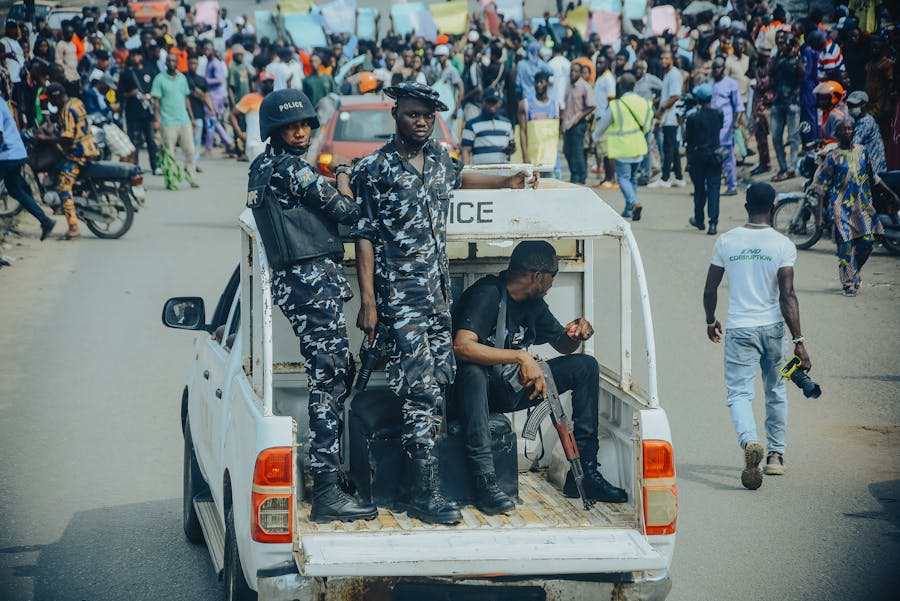JOHANNESBURG (AP) — Mozambique’s deepening political and social unrest following its disputed October 9 elections has triggered alarm across Southern Africa, prompting the Southern African Development Community (SADC) to convene a summit to address the crisis. The violence, which has claimed at least 30 lives, underscores the fragility of the region and the far-reaching implications of instability in one of its key member states.
The violence erupted after Daniel Chapo, the candidate for the ruling Front for the Liberation of Mozambique (Frelimo), was declared the victor. Venancio Mondlane, an independent candidate who secured 20% of the vote, has challenged the results and called for nationwide protests. International observers, including the European Union’s Election Observation Mission, have alleged irregularities in the electoral process, adding fuel to an already volatile situation.
As regional leaders gather in Harare for the SADC summit from November 16 to 20, the stakes are high. The crisis in Mozambique is not just a domestic issue but a critical test for the region’s political stability, economic integration, and collective ability to uphold democratic norms. Here’s why the post-election violence in Mozambique has become a concern for the wider region.
Mozambique’s contested elections come at a time when several of its neighbors are navigating their own political transitions. Botswana recently witnessed a historic change of power when the ruling party was ousted after 58 years. In South Africa, the ruling party lost its parliamentary majority for the first time since 1994 and was forced to form a unity government. Mauritius, too, saw a dramatic electoral outcome, with the ruling party suffering a landslide defeat in the November 10 polls.
These developments highlight a growing trend of political change across Southern Africa. However, the stark contrast between Mozambique’s disputed elections and the relatively peaceful transitions elsewhere raises questions about the region’s ability to maintain democratic integrity. Allegations of irregularities in Mozambique’s election, including the alteration of results, have undermined public trust in the process and set a dangerous precedent. Similar criticisms were leveled against Zimbabwe’s 2023 elections, where international observers noted that the pre-polling environment and election day procedures failed to meet regional and international standards.
Beyond political implications, Mozambique’s unrest poses a significant threat to regional trade. Sharing borders with South Africa, Tanzania, Malawi, Zambia, Zimbabwe, and Eswatini, Mozambique is a vital hub for Southern Africa’s economy. Its ports, particularly the Maputo harbor, serve as key export channels for neighboring countries. However, the unrest has disrupted these trade routes, with South Africa temporarily closing its side of the Lebombo border in response to the protests.
The closure of the border has had immediate economic consequences. Trucks carrying minerals to the Maputo harbor were stranded, halting South Africa’s exports and costing the country’s economy an estimated 10 million rand ($550,000) per day. South Africa relies heavily on Mozambique for the transportation of chrome ore and concentrates, with 53% of its exports in 2023 passing through Maputo. The disruption has highlighted the interconnectedness of Southern Africa’s economies and the risks posed by instability in one country.
Mozambique itself is rich in mineral resources and has the potential to become an energy powerhouse following the discovery of natural gas in 2010. However, its ability to capitalize on these resources depends on political stability and effective governance. The ongoing unrest threatens to derail these ambitions, further complicating the region’s economic outlook.
The political crisis also stirs concerns about Mozambique’s fragile stability. The country is still recovering from a 15-year civil war that ended in 1992, during which the leftist Frelimo fought against the Renamo rebel movement. This year’s election was the first since 1994 without armed groups tied to political parties, marking a significant milestone in Mozambique’s democratic journey. However, the violent aftermath of the elections has cast a shadow over this progress.
Adding to the challenges is Mozambique’s battle against an Islamic State-affiliated insurgency in the northern province of Cabo Delgado. Since 2017, the insurgency has displaced 1.3 million people and left widespread destruction in its wake. Although 600,000 people have returned to their communities, many are coming back to shattered infrastructure, with homes, markets, and essential facilities destroyed. The United Nations has described the situation as dire, emphasizing the need for sustained international support to rebuild.
Mozambique’s instability also exacerbates migration pressures in the region. Neighboring countries, particularly South Africa, host significant numbers of Mozambican migrants seeking work and economic opportunities. Further unrest is likely to intensify this trend, straining resources in host countries and fueling tensions over illegal migration.
The SADC summit in Harare is expected to focus on finding a resolution to Mozambique’s crisis and addressing its broader implications for the region. Regional leaders face the daunting task of balancing immediate intervention with long-term strategies to promote political stability and economic resilience. The outcome of the summit will be closely watched as a barometer of Southern Africa’s ability to address its most pressing challenges collectively.
As Mozambique grapples with the fallout from its elections, the stakes extend far beyond its borders. The country’s political and economic stability is not just critical for its own future but for the entire Southern African region. Whether through diplomatic efforts, economic collaboration, or strengthened democratic institutions, the region must act decisively to ensure that Mozambique’s crisis does not become a precedent for instability in Southern Africa.


